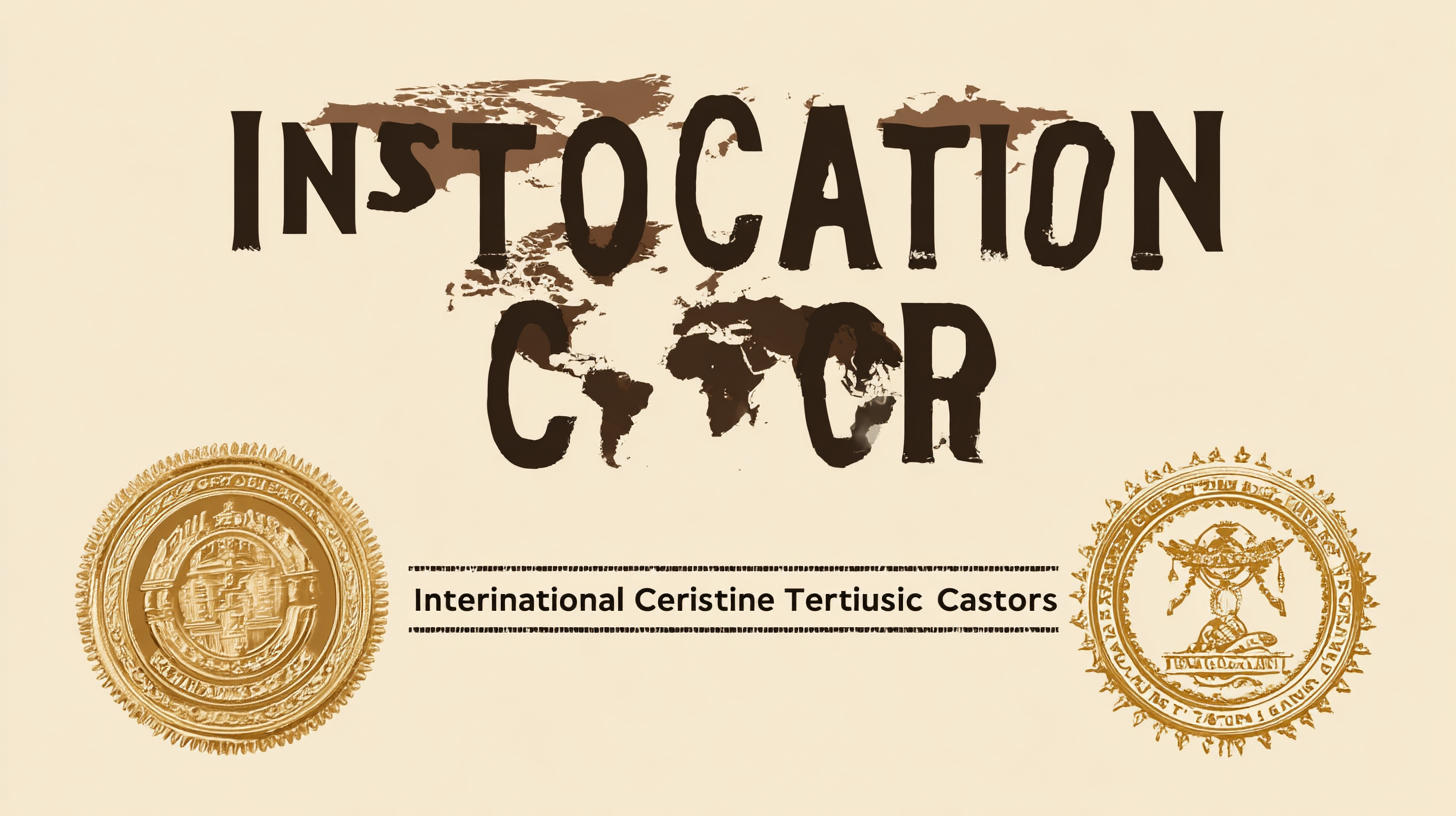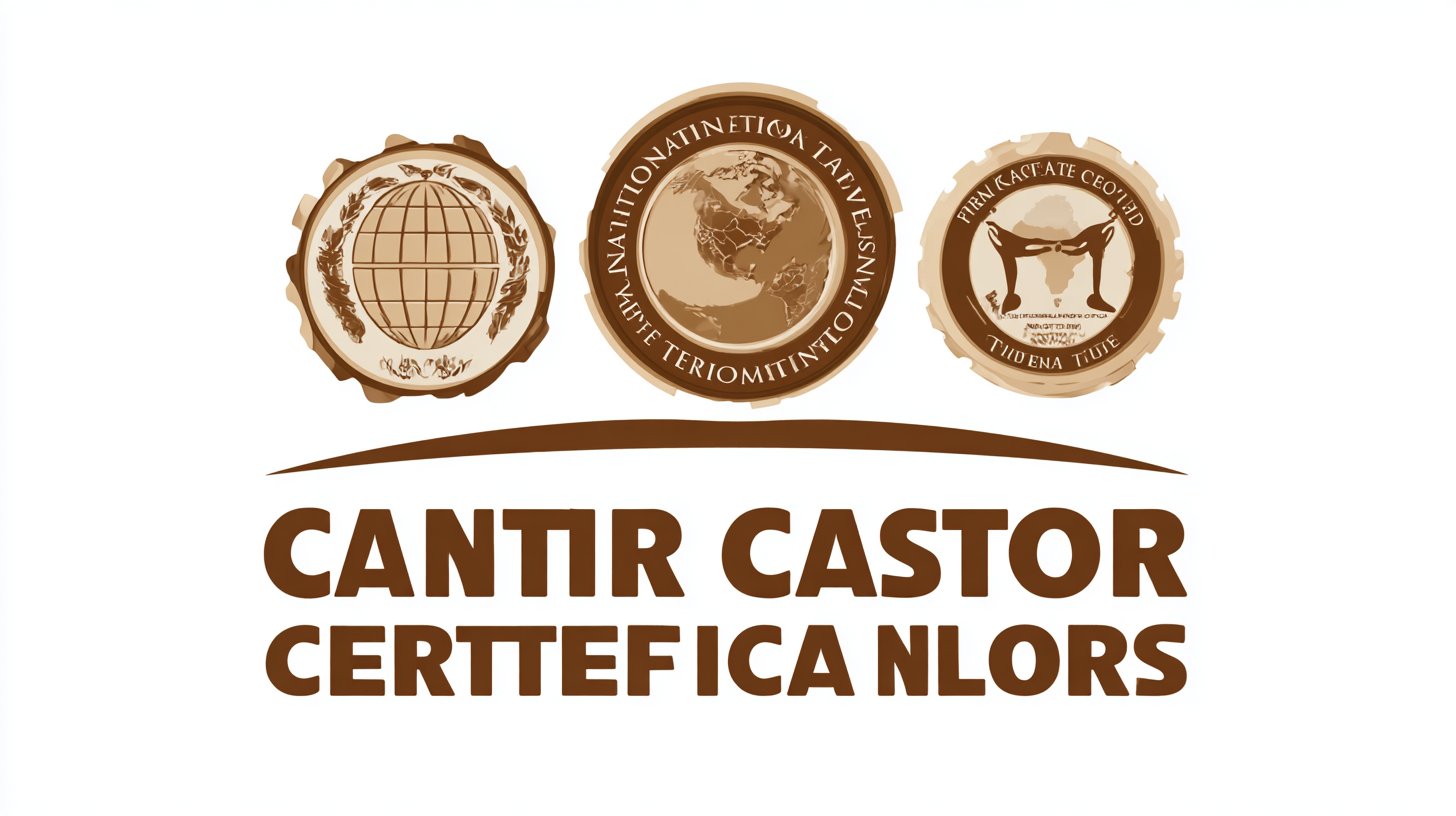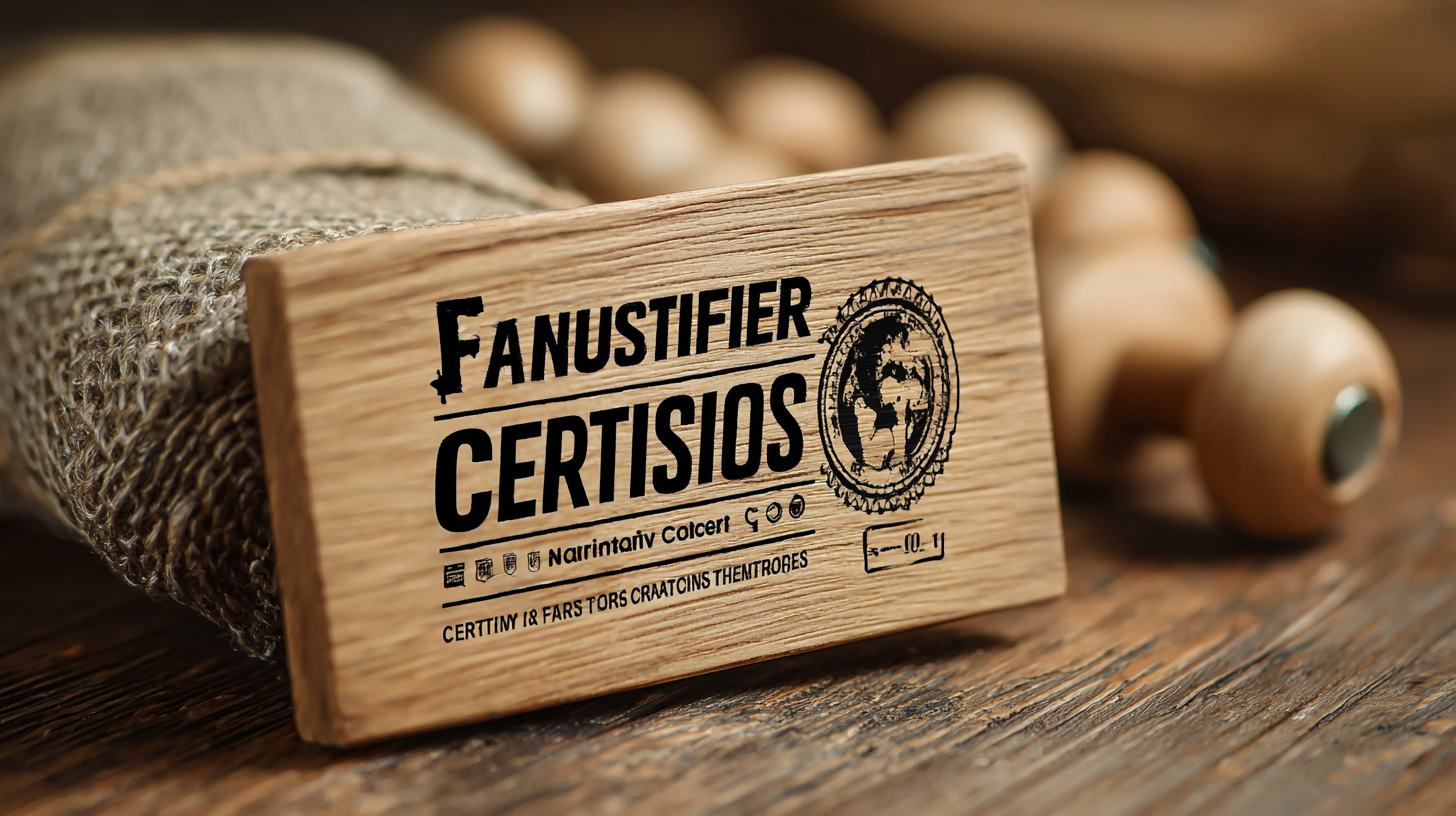
Navigating International Trade Certifications: A Comprehensive Guide for Importing the Best Furniture Castors
In the rapidly evolving landscape of global commerce, the importance of international trade certifications cannot be overstated, especially when it comes to sourcing high-quality furniture castors. According to a recent report by Grand View Research, the global furniture casters market size was valued at USD 2.8 billion in 2022 and is expected to expand at a compound annual growth rate (CAGR) of 4.6% from 2023 to 2030.

As manufacturers and importers navigate this competitive terrain, understanding the various certifications—ranging from ISO standards to environmental compliance—becomes crucial to ensure product quality and market acceptance. This guide aims to illuminate the top strategies for securing the best furniture castors while adhering to international standards, thereby empowering businesses to make informed decisions in their procurement processes.
Understanding Industry Production Standards for Furniture Castors
 When importing furniture castors, understanding industry production standards is crucial to ensure quality and reliability. Manufacturers of furniture castors must adhere to specific guidelines that dictate material selection, weight capacity, and overall durability. These standards not only enhance the product's functionality but also contribute to safety and longevity in use. For buyers, familiarity with these production standards helps in making informed purchasing decisions and minimizing the risk of subpar products.
When importing furniture castors, understanding industry production standards is crucial to ensure quality and reliability. Manufacturers of furniture castors must adhere to specific guidelines that dictate material selection, weight capacity, and overall durability. These standards not only enhance the product's functionality but also contribute to safety and longevity in use. For buyers, familiarity with these production standards helps in making informed purchasing decisions and minimizing the risk of subpar products.
Tips: Always check for certifications from reputable organizations related to furniture components before finalizing your purchase. Look for castors that conform to international standards such as ISO or ANSI, as these certifications indicate adherence to stringent quality checks. It’s also beneficial to request product samples to evaluate the quality firsthand and assess their suitability for your specific needs.
In addition to understanding certifications, it’s important to know the specifications that best suit your projects. Common considerations include load capacity, wheel size, and material type—each influencing the performance of the castors. Selecting castors designed for specific surfaces, such as hardwood or carpet, can significantly impact functionality and ease of movement.
Tips: Engage with suppliers who provide detailed technical specifications and documentation. This will help ensure that you choose the best furniture castors appropriate for your furniture design and the environment they will be used in. Always prioritize suppliers who demonstrate transparency in their manufacturing processes and quality assurance policies.
Types of International Trade Certifications for Furniture Accessories
When navigating international trade certifications for furniture accessories, it's essential to understand the various types of certifications that can enhance your importing process. Certifications such as ISO (International Organization for Standardization) and CE (Conformité Européenne) are vital for ensuring that the products meet international quality and safety standards. Other relevant certifications may include environmental certifications, which highlight sustainability efforts, an increasingly important factor for consumers today.
**Tips:** Always verify the credibility of the certification bodies and ensure that they are recognized internationally. Familiarize yourself with the specific requirements for each market you are targeting, as different countries may have unique standards and regulations.
Additionally, it's crucial to stay informed about the latest changes in trade regulations and certifications, such as the UK's guidance on items containing ivory or the new measures on Certificates of Origin for US-bound exports. Keeping up-to-date will not only aid in compliance but will also help in making informed purchasing decisions.
**Tips:** Subscribe to industry newsletters or utilize market intelligence tools to track trends and changes in trade certifications. Networking at trade fairs can also provide insights into the necessary certifications for specific products and markets, ensuring that your furniture accessories are compliant and market-ready.
Key Factors to Consider When Importing Castors for Furniture
When importing furniture castors, there are several key factors to consider that can impact the quality and compliance of your products. First and foremost, understanding the regulatory environment of the destination country is crucial. Different countries have specific certifications and standards that castors must meet, which may include load capacity, material specifications, and environmental regulations. Familiarizing yourself with these requirements will help you avoid costly delays or rejections at customs.
Another important factor is the selection of suppliers and manufacturers. Quality assurance is essential when sourcing castors, as subpar products can lead to safety hazards and customer dissatisfaction. It's advisable to conduct thorough due diligence on potential suppliers, looking for certifications, previous client reviews, and samples to assess their products firsthand. Establishing strong communication with suppliers helps ensure that they understand your standards and can meet your expectations consistently. Additionally, consider logistics and shipping times, as these can affect your supply chain efficiency and overall project timelines.
Navigating International Trade Certifications: Furniture Castors Import Analysis
This chart illustrates the key factors influencing the import of furniture castors based on certification categories.
Navigating Compliance Regulations for Global Furniture Trade
When engaging in the global furniture trade, understanding compliance regulations is crucial for success. Each country has specific standards and certifications that govern the import and export of goods, including furniture castors. These regulations often cover aspects such as safety, materials used, and environmental impact, demanding that businesses stay informed about the latest legal requirements. Failure to comply can result in costly delays, fines, or even the rejection of shipments at customs.
To navigate these complex compliance landscapes, businesses should start by familiarizing themselves with international standards such as ISO and specific regional regulations. Collaborating with local experts or consultants who understand the intricacies of the target market can provide valuable insights. Additionally, staying updated on changes in regulations through industry associations or trade groups is essential. This proactive approach not only helps in avoiding legal trouble but also builds trust with international partners and ensures a smoother entry into the global market.

Best Practices for Ensuring Quality in Furniture Castor Sourcing
When sourcing furniture castors, ensuring quality is paramount for both functionality and customer satisfaction. According to a report by the Global Furniture Market, the demand for high-quality furniture components is projected to grow at a compound annual growth rate (CAGR) of 5.2% from 2023 to 2028. This showcases a clear tendency among manufacturers and consumers to prioritize durability and reliability in their products. Best practices in sourcing involve thorough vetting of suppliers, ensuring that they comply with international quality standards such as ISO 9001. These certifications not only signify adherence to quality management processes but also enhance the credibility of your supply chain.
Additionally, employing testing protocols, such as load capacity tests and wheel performance evaluations, is critical. A study conducted by the Furniture Research Institute revealed that 78% of furniture failures can be attributed to substandard castors. To mitigate this risk, it's advisable to conduct regular audits and engage in continuous dialogue with suppliers about material sourcing and manufacturing processes. Furthermore, maintaining a transparent supply chain and employing third-party testing facilities can bolster confidence in the quality of sourced products, ultimately translating into longer-lasting furniture and enhanced consumer trust.
Navigating International Trade Certifications: A Comprehensive Guide for Importing the Best Furniture Castors - Best Practices for Ensuring Quality in Furniture Castor Sourcing
| Certification Type | Description | Purpose | Applicable Standards | Key Considerations |
|---|---|---|---|---|
| ISO 9001 | Quality Management System | Ensures consistent quality in products | ISO 9001:2015 | Ongoing monitoring and improvement |
| CE Marking | European Conformity | Indicates compliance with EU safety standards | Various EU Directives | Documentation and testing are required |
| ANSI/BIFMA | American National Standards Institute/Business and Institutional Furniture Manufacturers Association | Ensures safety and performance of furniture | ANSI/BIFMA X5.1 | Testing by an accredited lab |
| RoHS | Restriction of Hazardous Substances | Limits hazardous materials in electrical products | EU RoHS Directive | Documentation proving compliance |
| GREENGUARD | Indoor Air Quality Certification | Ensures low chemical emissions for better air quality | GREENGUARD Standards | Testing by a certified laboratory |
